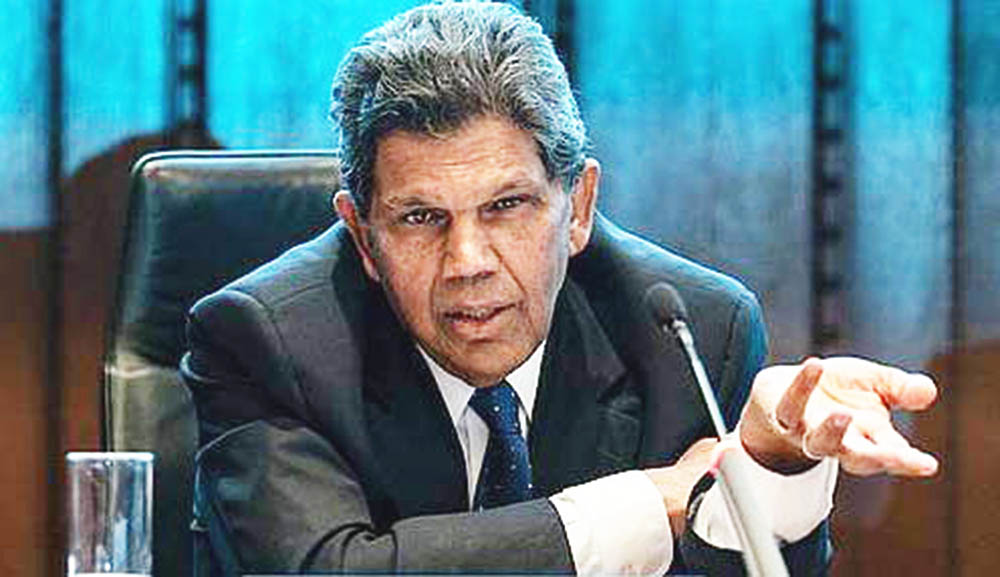These are swift-moving times and humanity is in need of anchors of stability and of justice. One naturally thinks of universal ethical values, grounded in one’s beliefs, one’s community, and the global community of humankind. One is mindful of the global commingling of populations, a trend that will inevitably grow as humanity converges and faces shared challenges. One naturally asks what is the glue that can hold societies together, that can hold global society together. The system of global ethical values that is the most developed so far is the system of universal human rights, applicable everywhere, in every society, in the globe, at large.
What, then, is the future of the universality of human rights in the face of searing challenges now staring humanity in the face? The first set of issues that arises for reflection is climate change. This is a challenge for every human being on the planet, for every government, for all national, regional, and international organizations. The human right that comes to mind prominently here is the right to life: of humanity as a whole. It surely must be right as an ethical proposition to say that every human being has a duty to do her or his utmost to save the planet. Every person, every government, every organization should be asking whether she, he, or it is discharging this ethical duty to safeguard the future of Earth and its inhabitants.
The second set of issues that arises for reflection relates to the UN Sustainable Development Goals and the phenomenon of widespread poverty. Even as we strive to protect the Earth and the lives of its inhabitants, we must also give equally urgent attention to the need to assure the sustainable livelihood of every person on the planet. It is a glaring injustice that so many people across the world are denied the means of a sustainable livelihood. The right that comes to mind here is the right to development: of every person, of every people, of humanity at large. Every society should be engaging in a dialogue among its members on how to implement the right to development better.
The third set of issues that calls for attention relates to the prevention of conflicts. The right that comes to mind here is the right to peace. As we write/read this, devastating conflicts are raging in different parts of the world with unconscionable costs in lives lost and suffering inflicted on innocent civilians, including babies, children and women. The prevention of conflicts must be high on the national, regional and international agendas. Every country should be engaging in a dialogue on how to preserve peace within its midst. In one of his reports on the prevention of conflicts, former UN Secretary-General Kofi Annan called for every country to have in place a national preventive system to ward off conflicts. Alas, few countries actually have such preventive systems. It should be a matter of the highest priority to activate this idea in every country and every region or the world.
Related to the need for a national preventive system, is the need for every country to have in place a National Human Rights Protection System. This entails ensuring that the constitution and laws of the country are in line with international human rights laws, that judges can pronounce on claims that inalienable human rights are not being respected or protected, that human rights are being taught in schools and other institutions of learning, that the country is mindful of the need to address grievances rooted in injustice, and that the country is striving for a culture of human rights for every person and for all groups of society.
Reflecting on the future of the universality of human rights, we must keep in mind that humans are already looking for extra-terrestrial living space, that is to say, to make life on other planets. There are challenging issues to be kept in mind here: what laws would govern human societies in outer space? Should not the universality of human rights be the starting point for such laws? And, although it might appear far-fetched, if human beings were to meet other sentient beings in outer space, should not the universal human rights regime also be applicable to the interactions between humans and extra-terrestrials – at least as a point of departure?
In September of this year, the United Nations will be hosting a Summit of the Future and delegations are in the process of discussing an outcome document of the Summit of the Future. It would be important for the outcome document of the summit of the future to reaffirm the universality of human rights as the point of departure for the future of global governance, as well as for extra-terrestrial governance.
The future of the universality of human rights is an issue that deserves urgent attention and the highest priority as we reflect on the unprecedented challenges facing the Earth and its inhabitants, and as we think about the national, regional, and universal ethical values that can help hold our societies together and guide them through a highly unpredictable future.
Each country, every society, all societies, all countries, need to engage in shared reflection: are we being faithful to the universal values of the Universal Declaration of Human Rights. Are we practising the precept of the Universal Declaration that “All human beings are born free and equal in dignity and rights. They are endowed with reason and conscience and should act towards one another in a spirit of brotherhood.”






